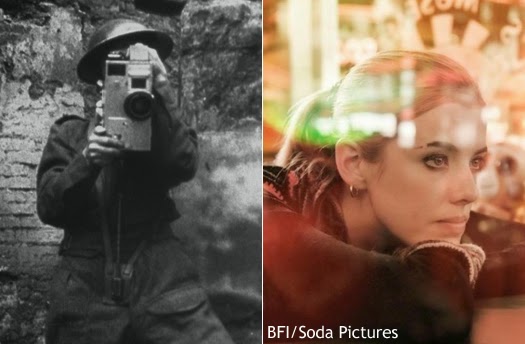Si's Sights And Sounds wraps up 2014 with a look at this year's extravaganza at Ballymully Cottage Farm
It is written that Stendhal Syndrome is an illness, a psychosomatic state that causes rapid heartbeat, dizziness, fainting, confusion and even hallucinations when an individual is exposed to a particularly beautiful cornucopia of art in one place at any one time. Such is the advertised experience at the Stendhal Festival of Art, which brings Ballymully Cottage Farm, on the outskirts of Limavady, to life each summer in its own unique, all encompassing and above all artistic manner.
Being the home of Danny Boy, the pipes, the pipes are calling before we even arrive at the Main Stage, or at least the steady, folky, easy-going rock of Pitcher Of The Moon is. Becca Allen's determined, driven vocals counter the big back cloud that hovers over the tent and point to something sunnier in the distance and throughout the rest of the day. Meanwhile, Bobbie Harvey and her band gently ease the soul with a lilting, jazzy beat, matching the tone and feel if not the sound of a young Joni Mitchell.
Passionate, yet predictable, the Snow Patrol-esque In An Instant have a sound worthy of grabbing any crowd, but their set gains only a limited attendance. Some other time for them, perhaps? Elsewhere, the drifty, hangdog Malojian, highly praised by Gary Lightbody, Lauren Laverne and Stuart Bailie, doesn't yet stand out as anything special, but his sweet, homely and sometimes catchy melodies are definitely pleasant to the ears.
Time for two doses of reliability. It so appears that PØRTS' leading man, Steven McCool, misses the name Little Bear so much that he's brought along a t-shirt with a bear on it. And changed the lyrics of I'd Let You Win to "I'll let you in... my cardigan". It's that time of night, so let there be that type of humour. Back at the Main Stage, Bronagh Gallagher (above) and her smoothly soulful rock are a communal medicine for the night, entrancing in the midst of misty lights and a chanting crowd. If PØRTS feel experimental, Gallagher feels wholly at home, each artist unifying and heartwarming their watchers.
Then along come The Thundertones. At least that's what everyone's favourite Perfect Cousins and Teenage Kickers (even today) try to be, with their material retaining the same punky, powerful thrust it has always had. When one isn't watching Paul McLoone play with his microphone stand and jump, one is jumping to the beat. Alas, they can't maintain such a pace, and The Thundertones teeter dangerously close to Going Undertones. Fortunately the set ends before that happens.
There are no big black clouds on Stendhal's second day, just a lovely sunset and the dulcet, delicate tones of Lisa O'Neill. Draperstown's Gemma Bradley performs in the woods, her piercing vocals and steely gaze defy her slight, fragile frame and create a promising presence. It's quite a contrast to the friendly gospel folk of The Henry Girls, which spreads over the farm like a warm blanket.
By now, the rain is falling, but that doesn't prevent the atmosphere of a Jazz Festival and the light of Lumiere (well, something like that anyway) teeing up for a unique ambience at the Keady Corner. If only more were dancing to Duke Special's Gramophone Set, and his blend of Ritz and Andrews Sisters.
Never mind, for the highlight of the whole weekend is just around the corner - the cheery, chirpy warm up of the wondrous Wonder Villains. Packed with youthful punk pop and retro grunge, and a fine leading lady to boot, they stagger the eyes and delight the ears with their spirited, spunky synchronicity, sparking both young and old into life. They are, in a word, awesome here - one hopes they can maintain this standard. To quote a certain Yasmin Evans, the only way is up.
Pleasurably paced reliability is key for Paddy Casey. Like his namesake Paul, and the Jive Aces, his set goes down a treat. Particularly when he performs "I Wanna Be Like You"; how can you not win with that song? In closing, headliners Frightened Rabbit take to the Main Stage - they are, in essence, four guitars, two keyboards, a consistent drum beat and a succession of singable refrains and tantalising riffs.
The dry wit of Neil Hannon has been foregone this year for something more upliftingly Scottish - and, to be fair, who really wants to think at this moment? And though the sound isn't the kindest to them, these killer Rabbits are the ideal tonic for closing time, raising everyone's spirits and cementing Stendhal's status, at least in my mind, as Northern Ireland's Electric Picnic. More of the same next year, please.



















